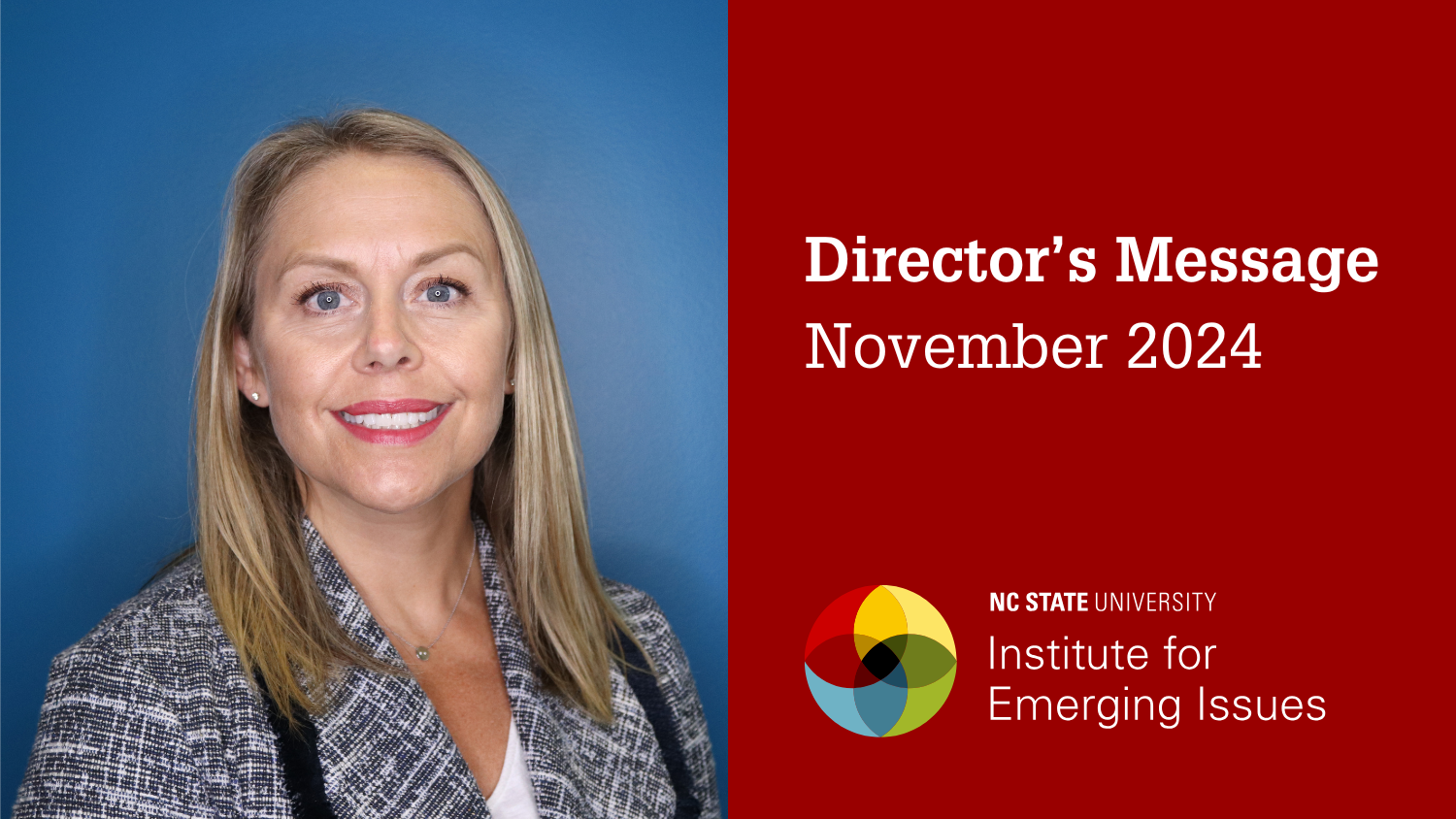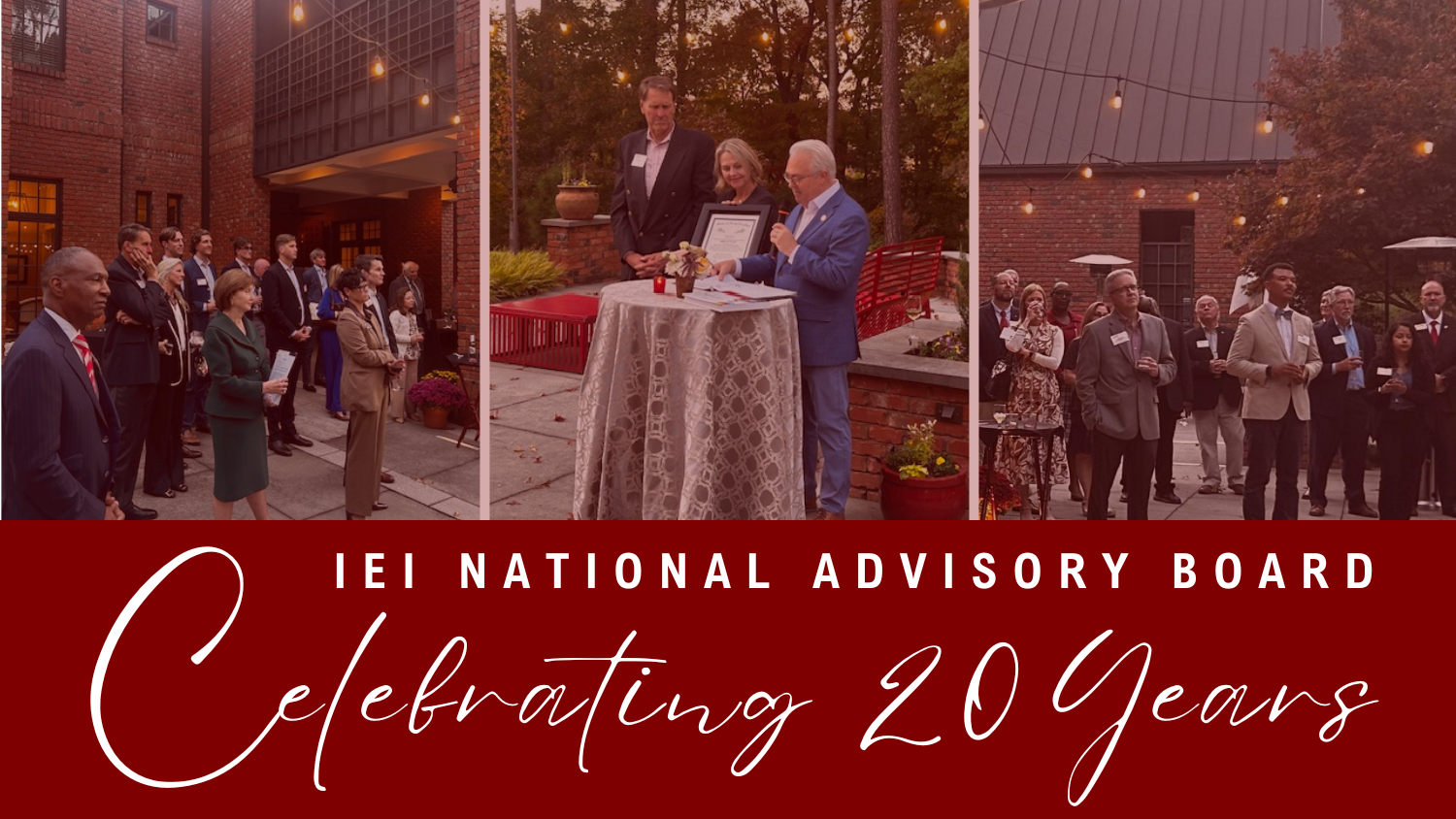My father’s hands, and the respect of all employment
One of the most beautiful sights in this world was also one that embarrassed me greatly—my father’s hands.
But they shouldn’t have.
Roughened and cracked, my father’s hands stayed coated with the remnants of layers and layers of grease, stains of work accrued from his many years as a mechanic and windshield installer (GLASS TECHNICIAN as he would say.)
In my rural Johnston County hometown, it wasn’t uncommon to have a father who worked with his hands, and I loved my eccentric, carefree father greatly. However, I have to admit, at times I was jealous of my friends who had fathers who worked in offices: Their fathers’ hands always seemed clean. But did that make them better? Did that make their work more important?
I’ve been thinking about my father’s hands a lot lately as the Institute for Emerging Issues continues to plan our Fall Emerging Issues forum (due to Hurricane Florence the forum’s now been scheduled for Nov. 27!) You see, the forum, called “ReCONNECT to Community,” is all about civic engagement, about reconnecting communities across all social divides. And there’s one social divide we often don’t think enough about as a culture: The divide between blue- and white-collar jobs, which can feel like a chasm as the 21st century and its lightning-speed changes march on.
Recently, actor Geoffrey Owens (The oldest daughter’s husband on “The Cosby Show,” y’all) was shamed for working a side job at Trader Joe’s between acting gigs. Others, specifically many actors, soon came to his defense on social media, but the story brought to light a bias that has lingered in our society—that society can view service or blue-collar jobs, even when they’re NOT being worked by somewhat famous actors in between gigs, as “less than.”
I know, because I was one of the people working them—for a minute—even though my parents did everything they could so that I’d never have to do anything but sit in a nice, air-conditioned office.
I was always good at surprising them.
Both North Carolina natives, my parents grew up in William Faulkner-esque poverty, working harder than I’ve ever had to from the time they were children in rural North Carolina.(Try complaining about loading the dishwasher when your mother was picking cotton by age five) My parents’ hard work continued into their adulthoods. A natural aptitude for academics landed them both at college, though while my mother graduated, my father’s limited finances kept him from finishing.
With both of them dead and buried, and no one left to get offended, I don’t mind telling you that my father was the naturally smarter of the two.
He possessed a flexible, hungry mind capable of maneuvering the greatest abstract thought. During dinnertime, he might talk about Nascar, an obscure Civil War battle or the intricacies of time itself. He devoured books of all types, leaving them grease-smudged and dog-eared around the house. He would have been a great history professor, though he also loved the mechanical work that he did.
He found an honor in it, but held an immense pride that I started off my career sitting behind a desk.
But then, life happened, and the 2008 recession happened and much like Mr. Owens I found myself a self-employed freelancer looking for a way to make ends meet. I worked in retail, at restaurants and picked up side editing jobs whenever I could.
It was through this work that I saw firsthand some of the things I had only read about as an idealistic, cosseted college student in air-conditioned classrooms.
I learned that many people working these service and blue-collar jobs have a hard time connecting to community because they don’t have the time, or the resources—because they’re working three jobs and can still barely make rent.
Because they’re sick and they don’t have health insurance.
Because they don’t have transportation and they can’t afford a car.
This starts with the fact that their jobs are not respected like they should be. A great way to make your community more cohesive? Start by respecting all its different forms of employment—and advocating living wages for all.
There’s a direct link between this abstract lack of respect for some jobs and the reality of these workers’ lower wages, said David A. Zonderman, a professor of history at NC State University.
Zonderman, who specializes in American labor history, said the U.S.’ capitalistic, aspirational culture had long undervalued working-class jobs, seeing white-collar jobs as a step up in society. This thinking has led directly to a lack of skilled trade workers in the American economy, Zonderman said.
“I say this as a guy sitting here with a PhD who’s worked several years in higher education— four-year-college isn’t for everybody . . . if a kid wants to be a carpenter, a machinist, whatever, they should be praised for it, not shamed,” Zonderman said.
Great work highlighting the importance of skilled trades and the training required for them is happening over at EducationNC, a nonprofit focusing on news about North Carolina’s educational systems. Recently, the EdNC team did a series on the state’s community colleges, highlighting everything from the cosmetology to blacksmith training that happens at them.
Stories like these are important. More positive attention surrounding these jobs will lead to increasing their value in society, which, hopefully, will lead to better wages for them.
And those higher wages are important for the whole economy. Seventy percent of the U.S.’s economy is based on consumer spending, Zonderman said. If people can’t spend, they can’t help support the society.
More discretionary income AND time (low wages mean that often low-income workers have to work several jobs) can help civic engagement because people will simply have more time to participate civically, Zonderman said, citing studies noting that when people have more money and time they can better participate in civic activities from PTA meetings to voting in local elections.
Strong communities are ones where diversity is praised and accepted, and this includes diversity of employment, especially as many North Carolina communities must reinvent themselves with the changing U.S. economy.
Strong communities are where everyone feels connected.
Strong communities are those in which all jobs, including those that make your hands dirty, are respected, because work connects us all.
Join us for the Nov. 27 ReCONNECT to Community forum in Asheville, where we’ll be discussing all sorts of different ways to reconnect North Carolina civically.
Register now at emergingissues.org.
- Categories:


